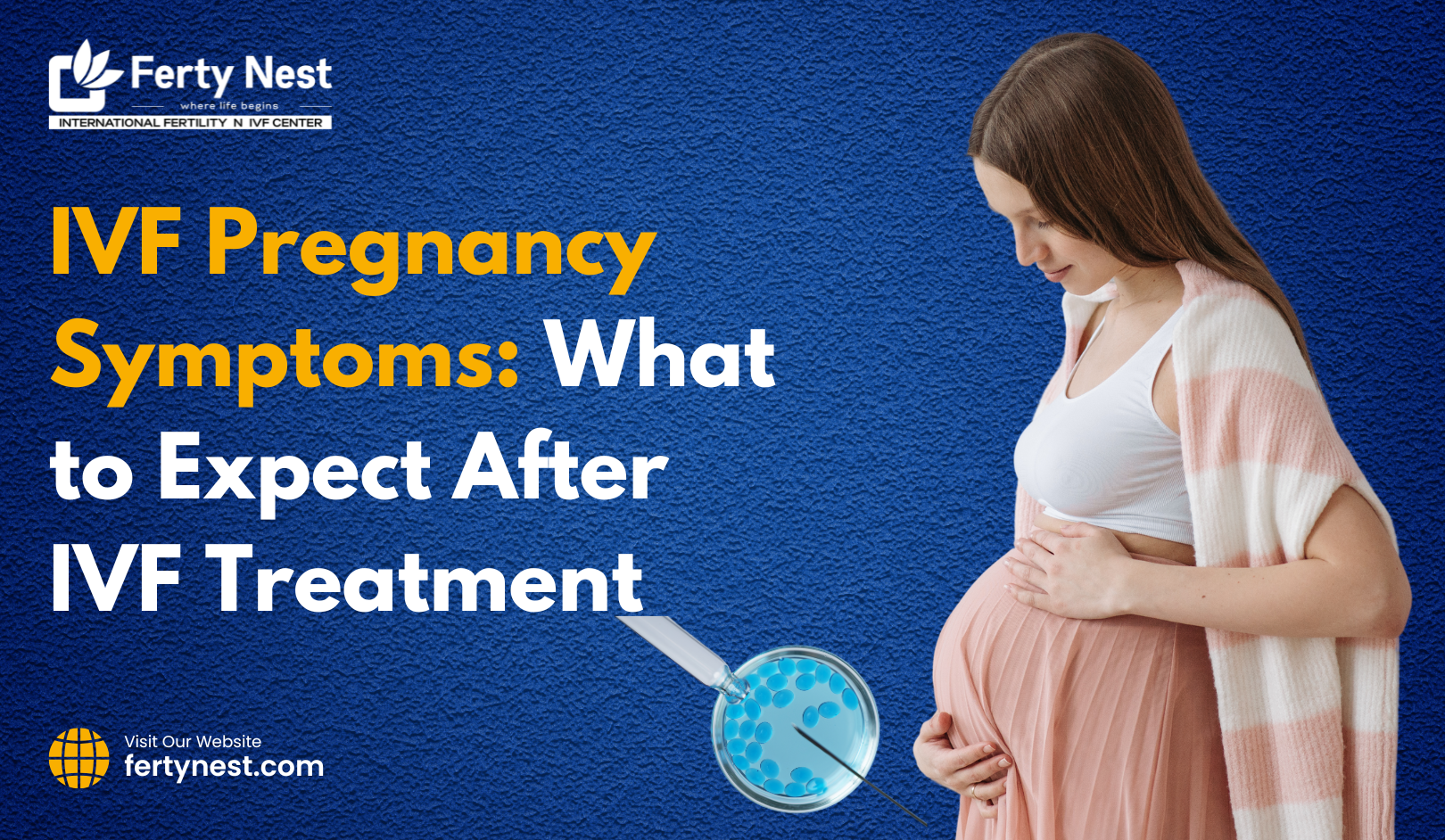Undergoing IVF (In Vitro Fertilization) is an emotional and physical journey, and the anticipation of pregnancy after the procedure can bring a mix of excitement and anxiety. One of the biggest questions many women ask is: What are the signs of pregnancy after IVF? Knowing what to look for can help manage expectations and prepare for the next steps in the journey.
At Ferty Nest IVF, we specialize in providing top-notch IVF treatment, guiding patients through each phase with care and support. Understanding the early signs of pregnancy post-IVF can be crucial to identifying success and preparing for the next stages. Here’s a guide to help you understand what symptoms may indicate pregnancy after IVF.
1. Implantation Bleeding or Spotting
One of the earliest signs of pregnancy after IVF is implantation bleeding. When the embryo successfully implants itself into the uterine lining, it can sometimes cause light spotting or a slight bleeding. This usually occurs around 6-12 days after embryo transfer. While it’s common and generally harmless, it’s important to distinguish it from your normal menstrual period.
What to do: If you experience light bleeding or spotting, don’t panic. However, it’s important to consult your doctor to rule out any complications.
2. Tender Breasts or Swollen Breasts
Hormonal changes are one of the key factors in early pregnancy, and one noticeable symptom is breast tenderness. After IVF, your body may begin to experience an increase in estrogen and progesterone, which causes your breasts to feel swollen, sensitive, or tender to the touch. Some women may even notice a slight change in the size of their breasts.
What to do: Breast tenderness is normal, but if the discomfort becomes too intense or is accompanied by other symptoms, contact your IVF specialist.
3. Fatigue and Exhaustion
Pregnancy hormones, especially progesterone, can cause extreme fatigue. You may feel unusually tired and drained, even if you haven’t been physically active. This can happen very early after IVF, and it may last for several weeks as your body adjusts to the pregnancy.
What to do: Take it easy and listen to your body. Get plenty of rest, and if necessary, avoid strenuous physical activity. Proper nutrition and hydration are key.
4. Nausea or Morning Sickness
Though morning sickness typically sets in around the 6th week of pregnancy, some women may start to feel a little queasy or experience nausea sooner, sometimes even as early as the first two weeks after IVF. This can vary from mild nausea to more severe vomiting.
What to do: Stay hydrated and eat small, frequent meals throughout the day. If nausea becomes unmanageable, consult your doctor for advice on managing symptoms.
5. Increased Urination
In early pregnancy, the body begins to produce more blood, which results in more fluid being processed by the kidneys. This can lead to frequent urination. It is a common symptom in pregnancy and may increase over time as the pregnancy progresses.
What to do: This symptom is generally normal, but if you experience any discomfort, pain, or burning while urinating, seek medical attention to rule out a urinary tract infection (UTI).
6. Mood Swings and Emotional Sensitivity
Hormonal fluctuations that accompany pregnancy can cause you to feel a range of emotions. Mood swings—such as feeling suddenly happy, tearful, or irritable—are common after IVF. These emotional changes are caused by the rising levels of progesterone and estrogen.
What to do: Practice self-care and give yourself grace. If emotional stress becomes overwhelming, consider seeking support from a counselor or support group.
7. Mild Cramps
Mild cramping or pulling sensations in your lower abdomen can happen after IVF as your body adjusts to the new pregnancy. These cramps are usually harmless, but they can be unsettling. It is normal to feel these mild discomforts in the early stages of pregnancy.
What to do: If the cramping is mild and doesn’t increase in intensity, it is usually not a cause for concern. However, if you experience severe pain or cramping, it is important to consult your IVF doctor immediately.
8. Missed Period or Delay in Period
If you’ve had an embryo transfer and IVF was successful, one of the most significant signs of pregnancy is a missed period. This might seem like the most obvious sign, but because IVF patients often receive hormone support, their menstrual cycle can be altered, and periods may be delayed even before confirming pregnancy.
What to do: Take a pregnancy test as directed by your doctor. However, note that the results can sometimes be affected by the medications used during IVF treatment.
9. Positive Pregnancy Test
The most definitive sign of pregnancy after IVF is a positive pregnancy test. Blood tests or home pregnancy tests are used to check for hCG (human chorionic gonadotropin) levels, the hormone produced during pregnancy. A rising hCG level confirms pregnancy, and your IVF doctor will advise on further monitoring.
What to do: Follow your doctor’s instructions regarding follow-up tests to ensure the pregnancy is progressing well.
Conclusion:
Pregnancy after IVF is a thrilling and emotional experience, filled with anticipation and hope. While every woman’s experience is unique, these common pregnancy symptoms after IVF can help guide you through the early stages. At Ferty Nest IVF, we are committed to supporting you every step of the way—from IVF treatment to pregnancy monitoring.
Remember, while these symptoms are common, it’s essential to stay in close communication with your fertility specialist to ensure the best possible outcome. Trust the process, and know that you’re not alone on this journey. If you experience any unexpected symptoms or have concerns, don’t hesitate to reach out to your IVF clinic for guidance.

